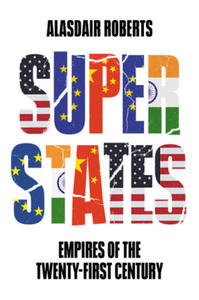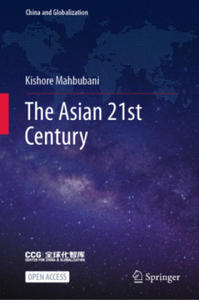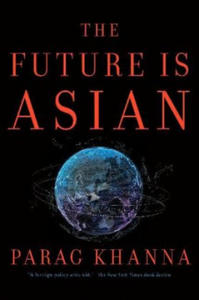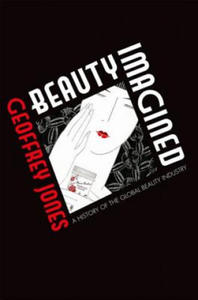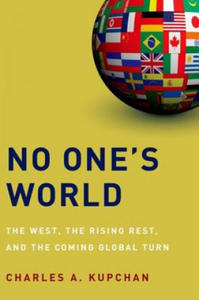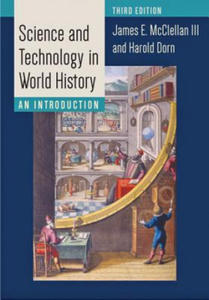libristo twenty first century india 4531654
- znaleziono 29 produktów w 5 sklepach
Development Under Dualism and Digital Divide in Twenty-First Century India
Książki
Sklep: KrainaKsiazek.pl
Superstates - Empires of the Twenty-First Century Polity Press
Książki / Literatura obcojęzyczna
In this century, the world will conduct an extraordinary experiment in government. In 2050, forty percent of the planet's population will live in just four places: India, China, the European Union, and the United States. These are superstates -- polities that are distinguished from normal countries by expansiveness, population, diversity, and complexity.How should superstates be governed? What must their leaders do to hold these immense polities together in the face of extraordinary strains and shocks? Alasdair Roberts looks to history for answers. Superstates, he contends, wrestle with the same problems of leadership, control and purpose that plagued empires for centuries. But they also bear heavier burdens than empires -- including the obligation to improve life for ordinary people and respect human rights.One axiom of history was that empires always died. Size and complexity led to fragility, and imperial rulers improvised constantly to put off the day of reckoning. Leaders of superstates are doing the same today, pursuing radically different strategies for governing at scale that have profound implications for democracy and human rights. History shows that there are ways to govern these sprawling and diverse polities well. But this requires a different way of thinking about the art and methods of statecraft.
Sklep: Libristo.pl
Archives of Empire v 1 From East India Company to Suez Canal Duke University Press
Inne 1
A rich collection of primary materials, the multivolume Archives of Empire provides a documentary history of nineteenth-century British imperialism. Barbara Harlow and Mia Carter have carefully selected a diverse range of texts that track the debates over imperialism in the ranks of the military, the corridors of political power, the lobbies of missionary organizations, the halls of royal geographic and ethnographic societies, the boardrooms of trading companies, the editorial offices of major newspapers, and farflung parts of the empire itself. Focusing on a particular region and historical period, each volume reveals the complexities of nineteenth-century colonialism and emphasizes its enduring relevance to the 'global markets' of the twenty-first century.This volume, From the East India Company to the Suez Canal, traces the beginnings of the British colonial enterprise in South Asia and the Middle East. It includes key texts from the era of the privately owned British East India Company through the crises that led to the company's takeover by the Crown in 1858 to the momentous opening of the Suez Canal in 1869. Government proclamations, military reports, and newspaper articles appear here alongside pieces by Rudyard Kipling, Charles Dickens, John Stuart Mill, Karl Marx, Benjamin Disraeli, and many others. A number of documents chronicle arguments between mercantilists and free trade advocates over the competing interests of the nation and the East India Company. Others provide accounts of imperial crises -- including the trial of Warren Hastings, the Indian Rebellion (Sepoy Mutiny), and the Arabi Uprising -- that highlight the human, political, and economic costs of imperial domination and control.
Sklep: Albertus.pl
Asian 21st Century Springer Verlag, Singapore
Książki / Literatura obcojęzyczna
This open access book consists of essays written by Kishore Mahbubani to explore the challenges and dilemmas faced by the West and Asia in an increasingly interdependent world village and intensifying geopolitical competition. The contents cover four parts: Part One The End of the Era of Western Domination. The major strategic error that the West is now making is to refuse to accept this reality. The West needs to learn how to act strategically in a world where they are no longer the number 1. Part Two The Return of Asia. From the years 1 to 1820, the largest economies in the world were Asian. After 1820 and the rise of the West, however, great Asian civilizations like China and India were dominated and humiliated. The twenty-first century will see the return of Asia to the center of the world stage. Part Three The Peaceful Rise of China. The shift in the balance of power to the East has been most pronounced in the rise of China. While this rise has been peaceful, many in the West have responded with considerable concern over the influence China will have on the world order. Part Four Globalization, Multilateralism and Cooperation. Many of the world's pressing issues, such as COVID-19 and climate change, are global issues and will require global cooperation to deal with. In short, human beings now live in a global village. States must work with each other, and we need a world order that enables and facilitates cooperation in our global village.
Sklep: Libristo.pl
Easternisation War and Peace in the Asian Century VINTAGE
Literatura obcojÄzyczna
WITH A NEW PREFACE BY THE AUTHOR The West's domination of world politics is coming to a close. The flow of wealth and power is turning from West to East and a new era of global instability has begun. Easternisation is the defining trend of our age - the growing wealth of Asian nations is transforming the international balance of power. This shift to the East is shaping the lives of people all over the world, the fate of nations and the great questions of war and peace. A troubled but rising China is now challenging America's supremacy, and the ambitions of other Asian powers - including Japan, North Korea, India and Pakistan - have the potential to shake the whole world. Meanwhile the West is struggling with economic malaise and political populism, the Arab world is in turmoil and Russia longs to reclaim its status as a great power. We are at a turning point in history: but Easternisation has many decades to run. Gideon Rachman offers a road map to the turbulent process that will define the international politics of the twenty-first century.
Sklep: Literacka.pl
Colossus Penguin
Inne 1
Is America the new world empire? Presidents from Lincoln to Bush may have denied it but, as Niall Ferguson's brilliant and provocative book shows, the US is the greatest military and economic colossus of all time. What's more, it always has been an empire, with its founding fathers battling westwards for territory and their successors spreading freedom across the world - at gunpoint if necessary. Yet is the US really equipped to play Atlas, bearing the weight of the world on its shoulders? America, Ferguson reveals, is now an empire running on empty, backing away from the crucial imperial commitments of time, money and manpower - and resting on perilous financial foundations. When the New Rome falls, its collapse may come from within. Unlike the majority of European writers who have written on this subject, I am fundamentally in favor of empire. Indeed, I believe that empire is more necessary in the twenty-first century than ever before. The threats we face are not in themselves new ones. But advances in technology make them more dangerous than ever before. Thanks to the speed and regularity of modern air travel, infectious diseases can be transmitted to us with terrifying swiftness. And thanks to the relative cheapness and destructiveness of modern weaponry, tyrants and terrorists can realistically think of devastating our cities. The old, post-1945 system of sovereign states, bound loosely together by an evolving system of international law, cannot easily deal with these threats because there are too many nation-states where the writ of the "international community" simply does not run. What is required is an agency capable of intervening in the affairs of such states to contain epidemics, depose tyrants, end local wars and eradicate terrorist organizations. This is the self-interested argument for empire. But there is also a complementary altruistic argument. Even if they did not pose a direct threat to the security of the United States, economic and social conditions in a number of countries in the world would justify some kind of intervention. The poverty of a country like Liberia is explicable not in terms of resource endowment; otherwise (for example) Botswana would be just as poor. The problem in Liberia, as in so many sub-Saharan African states, is simply misgovernment: corrupt and lawless dictators whose conduct makes economic development impossible and encourages political opposition to take the form of civil war. Countries in this condition will not correct themselves. They require the imposition of some kind of external authority. There are those who would insist that an empire is by definition incapable of playing such a role; in their eyes, all empires are exploitative in character. Yet there can be
Sklep: Albertus.pl
Future Is Asian Harper Collins Publishers
Książki / Literatura obcojęzyczna
A compelling, eye-opening account of how Asia is creating a new template for the future of the world from Parag Khanna, a renowned globalization scholar and former senior advisor to the US National Intelligence Council and Special Operations Forces.Asia is where the action is. Five billion people, one-third of the global economy, two-thirds of global economic growth, a third of the Fortune 100 companies, eight of the ten largest armies, five nuclear powers, and massive technological innovation. Whether using demography, geography, or economy as a metric, Asia is already the present-and it is certainly the future.In The Future Is Asian, Parag Khanna sweeps us along on his travels spanning Saudi Arabia to Japan and Russia to Australia, explaining how Asia is by far the most ethnically, linguistically, and culturally diverse region of the planet. Even for Asians, Asia is dizzying to navigate. That complexity leads to common misdiagnoses: Western thinking on Asia conflates the entire region with China, predicts World War III around every corner, and regularly forecasts debt-driven collapse for the region's major economies. But in the real world, the region is experiencing a confident new wave of growth. India and Southeast Asia are now outpacing China, leaders have put aside territorial disputes in favor of integration, and today's infrastructure investments are the platform for the next generation of urban and digital growth. We cannot afford to continue to get Asia so wrong, warns Khanna.If the nineteenth century featured the Europeanization of the world, and the twentieth century its Americanization, then the twenty-first century is surely the time of Asianization. With America's universities and tech sector dependent on Asian talent and politicians singing the praises of Asia's glittering cities and efficient governments, Asia is firmly in our nation's consciousness. Now The Future Is Asian accurately shows Asia from the inside out, telling the story of how this mega-region is coming together and reshaping the entire planet at the same time.
Sklep: Libristo.pl
Beauty Imagined Oxford University Press
Książki / Literatura obcojęzyczna
The global beauty business permeates our lives, influencing how we perceive ourselves and what it is to be beautiful. The brands and firms which have shaped this industry, such as Avon, Coty, Estee Lauder, L'Oreal, and Shiseido, have imagined beauty for us. This book provides the first authoritative history of the global beauty industry from its emergence in the nineteenth century to the present day, exploring how today's global giants grew. It shows how successive generations of entrepreneurs built brands which shaped perceptions of beauty, and the business organizations needed to market them. They democratized access to beauty products, once the privilege of elites, but they also defined the gender and ethnic borders of beauty, and its association with a handful of cities, notably Paris and later New York. The result was a homogenization of beauty ideals throughout the world. Today globalization is changing the beauty industry again; its impact can be seen in a range of competing strategies.Global brands have swept into China, Russia, and India, but at the same time, these brands are having to respond to a far greater diversity of cultures and lifestyles as new markets are opened up worldwide. In the twenty first century, beauty is again being re-imagined anew.
Sklep: Libristo.pl
No One's World Oxford University Press Inc
Książki / Literatura obcojęzyczna
The world is on the cusp of a global turn. Between 1500 and 1800, the West sprinted ahead of other centers of power in Asia and the Middle East. Europe and the United States have dominated the world since. But today the West's preeminence is slipping away as China, India, Brazil and other emerging powers rise. Although most strategists recognize that the dominance of the West is on the wane, they are confident that its founding ideas-democracy, capitalism, and secular nationalism-will continue to spread, ensuring that the Western order will outlast its primacy. In No One's World, Charles A. Kupchan boldly challenges this view, arguing that the world is headed for political and ideological diversity; emerging powers will neither defer to the West's lead nor converge toward the Western way. The ascent of the West was the product of social and economic conditions unique to Europe and the United States. As other regions now rise, they are following their own paths to modernity and embracing their own conceptions of domestic and international order. Kupchan contends that the Western order will not be displaced by a new great power or dominant political model.The twenty-first century will not belong to America, China, Asia, or anyone else. It will be no one's world. For the first time in history, the world will be interdependent-but without a center of gravity or global guardian. More than simply diagnosing what lies ahead, Kupchan provides a detailed strategy for striking a bargain between the West and the rising rest by fashioning a new consensus on issues of legitimacy, sovereignty, and governance. Thoughtful, provocative, sweeping in scope, this work is nothing less than a global guidebook for the 21st century.
Sklep: Libristo.pl
No One's World Oxford University Press Inc
Książki / Literatura obcojęzyczna
The world is on the cusp of a global turn. Between 1500 and 1800, the West sprinted ahead of other centers of power in Asia and the Middle East. Europe and the United States have dominated the world since. But today the West's preeminence is slipping away as China, India, Brazil and other emerging powers rise. Although most strategists recognize that the dominance of the West is on the wane, they are confident that its founding ideas-democracy, capitalism, and secular nationalism-will continue to spread, ensuring that the Western order will outlast its primacy. In No One's World, Charles A. Kupchan boldly challenges this view, arguing that the world is headed for political and ideological diversity; emerging powers will neither defer to the West's lead nor converge toward the Western way. The ascent of the West was the product of social and economic conditions unique to Europe and the United States. As other regions now rise, they are following their own paths to modernity and embracing their own conceptions of domestic and international order. Kupchan contends that the Western order will not be displaced by a new great power or dominant political model.The twenty-first century will not belong to America, China, Asia, or anyone else. It will be no one's world. For the first time in history, an interdependent world will be without a center of gravity or global guardian. More than simply diagnosing what lies ahead, Kupchan provides a detailed strategy for striking a bargain between the West and the rising rest by fashioning a new consensus on issues of legitimacy, sovereignty, and governance. Thoughtful, provocative, sweeping in scope, this work is nothing less than a global guidebook for the 21st century.
Sklep: Libristo.pl
Bare Branches MIT Press Massachusets Institute of Tech nology
Inne 1
What happens to a society that has too many men? In this provocative book, Valerie Hudson and Andrea den Boer argue that, historically, high male-to-female ratios often trigger domestic and international violence. Hudson and den Boer suggest that the sex ratios of many Asian countries, particularly China and India - which represent almost 40 percent of the world's population - are being skewed in favor of males on a scale that may be unprecedented in human history. Through offspring sex selection (often in the form of sex-selective abortion and female infanticide), these countries are acquiring a disproportionate number of low-status young adult males, called "bare branches" by the Chinese. Hudson and den Boer argue that this surplus male population in Asia's largest countries threatens domestic stability and international security. The prospects for peace and democracy are dimmed by the growth of bare branches in China and India, and, they maintain, the sex ratios of these countries will have global implications in the twenty-first century.
Sklep: Albertus.pl
Yoga Body Oxford University Press Inc
Książki / Literatura obcojęzyczna
Yoga is so prevalent in the modern world-practiced by pop stars, taught in schools, and offered in yoga centers, health clubs, and even shopping malls--that we take its presence, and its meaning, for granted. But how did the current yoga boom happen? And is it really rooted in ancient Indian practices, as many of its adherents claim? In this groundbreaking book, Mark Singleton calls into question many commonly held beliefs about the nature and origins of postural yoga (asana) and suggests a radically new way of understanding the meaning of yoga as it is practiced by millions of people across the world today. Singleton shows that, contrary to popular belief, there is no evidence in the Indian tradition for the kind of health and fitness-oriented asana practice that dominates the global yoga scene of the twenty-first century. Singleton's surprising-and surely controversial-thesis is that yoga as it is popularly practiced today owes a greater debt to modern Indian nationalism and, even more surprisingly, to the spiritual aspirations of European bodybuilding and early 20th-century women's gymnastic movements of Europe and America, than it does to any ancient Indian yoga tradition.This discovery enables Singleton to explain, as no one has done before, how the most prevalent forms of postural yoga, like Ashtanga, Bikram and "Hatha" yoga, came to be the hugely popular phenomena they are today. Drawing on a wealth of rare documents from archives in India, the UK and the USA, as well as interviews with the few remaining, now very elderly figures in the 1930s Mysore asana revival, Yoga Body turns the conventional wisdom about yoga on its head.
Sklep: Libristo.pl
Science and Technology in World History Johns Hopkins University Press
Książki / Literatura obcojęzyczna
Tracing the relationship between science and technology from the dawn of civilization to the early twenty-first century, James E McClellan III and Harold Dorn's bestselling book argues that technology as "applied science" emerged relatively recently, as industry and governments began funding scientific research that would lead directly to new or improved technologies. McClellan and Dorn identify two great scientific traditions: the useful sciences, which societies patronized from time immemorial, and the exploration of questions about nature itself, which the ancient Greeks originated. The authors examine scientific traditions that took root in China, India, and Central and South America, as well as in a series of Near Eastern empires in late antiquity and the Middle Ages. From this comparative perspective, McClellan and Dorn survey the rise of the West, the Scientific Revolution of the seventeenth century, the Industrial Revolution, and the modern marriage of science and technology. They trace the development of world science and technology today while raising provocative questions about the sustainability of industrial civilization.This new edition of Science and Technology in World History offers an enlarged thematic introduction and significantly extends its treatment of industrial civilization and the technological super system built on the modern electrical grid. The Internet and social media receive increased attention. Facts and figures have been thoroughly updated and the work includes a comprehensive Guide to Resources, incorporating the major published literature along with a vetted list of websites and Internet resources for students and lay readers.
Sklep: Libristo.pl
szukaj w Kangoo libristo twenty first century india 4531654
Sklepy zlokalizowane w miastach: Warszawa, Kraków, Łódź, Wrocław, Poznań, Gdańsk, Szczecin, Bydgoszcz, Lublin, Katowice
Szukaj w sklepach lub całym serwisie
1. Sklepy z libristo pl twenty first century india 4531654
2. Szukaj na wszystkich stronach serwisu
t1=0.038, t2=0, t3=0, t4=0.013, t=0.038



